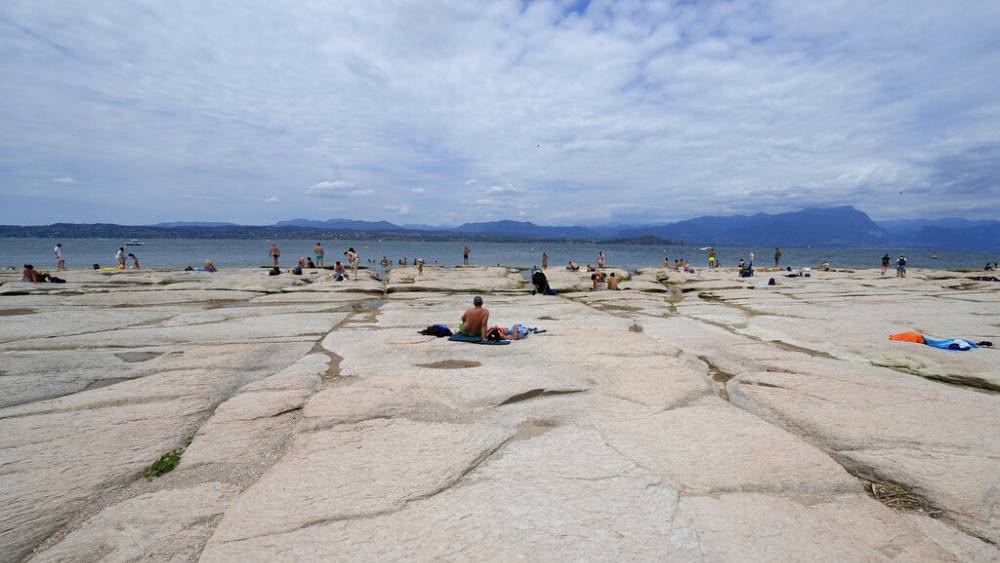During this long weekend in August, the many tourists who flock to Italy’s largest lake discover a landscape completely different than in previous years, Lake Garda different from the one they know.
Lake Garda has one of the lowest water levels ever measured, and the lake has shrunk dramatically. Otherwise the massive underwater rocks do not appear to light, the remaining waters are as warm as the Caribbean.
“We were here last year. And because we loved it, we’re back this year,” says tourist Beatrice Massey, perched on a sun-bleached rock jutting out above the lake’s natural shoreline.
“The landscape has changed a lot,” explains Beatrice Massy. “We were shocked when we arrived. We went on our usual walk but the water wasn’t there.”
The change can also be seen on the drone photos.
Northern Italy has experienced a historic drought in recent months linked to climate change: there is almost no rainfall, and temperatures are rising.
Vital rivers such as the Po River, which flows through Italy’s agricultural and industrial lands, have dried up completely in harsh conditions, severely affecting food production.
Italy isn’t the only country in Europe suffering its worst drought in 500 years, according to teams of experts.
Several European countries, including Germany, Spain, Portugal, France, the Netherlands and the United Kingdom, are experiencing unprecedented droughts this summer. Farmers are particularly affected by the drought, and the authorities are taking emergency measures.
Droughts are expected to intensify in Europe, potentially affecting 47% of the continent.
The drought in the Po River, Italy’s longest river, has caused billions of dollars in losses to farmers in a region that produces 40% of Italian food.
The authorities have tried to compensate for the lack of rain by allowing more water to flow from Lake Garda into the local rivers. However, last month they reduced the amount of water to protect the lake and financially significant tourism.
With 45 cubic meters of water per second draining into rivers, the lake was rising 32 centimeters above water level on August 12, near record lows in 2003 and 2007.
The mayor of Garda, David Bidinelli, said he had to protect farmers and the tourism sector, stressing that the summer season is going better than expected for the tourism sector.
At the end of July, during the recent heat wave in Italy, vacationers, especially from Germany, canceled their trips to Italy.
“The drought is a fact that we have to deal with this year, but the tourism season is not in danger,” Bendinelli wrote in a Facebook post in late July. The lake loses 2 cm of water per day.
Temperatures on Lake Garda are above average for August, according to seatemperature.org.
The lake water temperature on Friday was about 26 degrees Celsius. This is several degrees higher than the usual average.
For Mario Triccani, who rents sun loungers and umbrellas on the lake, the historically low water level has a negative effect on his business: fewer people need his sun loungers as there are now enough rocks to sunbathe.
“The lake is usually a meter or more higher,” he says, pointing to a small wall that usually keeps water off the beach chairs.
It’s a little sad,” Trekani said. “You used to hear the waves here. Now you don’t hear anything at all.”

“Alcohol buff. Troublemaker. Introvert. Student. Social media lover. Web ninja. Bacon fan. Reader.”







More Stories
IBM has acquired Terraform provider HashiCorp for $6.4 billion
Applicable law – This is what will happen if Tiktok is banned in the United States of America – News
The new report seeks to end ineffective business EDI practices